Sharing Data to Help Food Bank Clients Manage Their Chronic Conditions
DASH Project Spotlight: Food for Health: Coordinating Care Across Sectors to Improve Health Among Vulnerable Populations
Sara Gorath, Manager of Community Outreach at North Texas Food Bank’s Our Community Pantry
Lead agency: Parkland Center for Clinical Innovation
Partners/collaborators: Parkland Health and Hospital System, North Texas Food Bank
The challenge
Not surprisingly, a growing body of evidence links food insecurity with diet-related medical conditions like diabetes and hypertension. These diseases can be nearly impossible to manage for people who lack reliable access to affordable, nutritious foods. In Dallas, a novel partnership between a health care system and local food banks is working to reduce this disparity.
Food banks are a critical source of supplemental nutrition for those struggling to make ends meet, making them an ideal setting to assist patients in managing chronic diseases. However, because health care and social services systems in Dallas are fragmented and uncoordinated, food banks lack client-specific information that could help them tailor nutritionally appropriate food choices for their clients with chronic health problems.
The opportunity
Through Data Across Sectors for Health (DASH), the Parkland Center for Clinical Innovation (PCCI), the Parkland Health and Hospital System, and the North Texas Food Bank and its 200+ Partner Agencies are leveraging the Dallas Information Exchange Portal (IEP) to improve the nutrition of food bank clients with chronic conditions. PCCI’s Health Services Research Manager, Bin Xie commented:
“The goal of the Dallas IEP is really to enable the community, including the health care and social services sectors, to better coordinate care and services provision for vulnerable populations.”
The Dallas IEP is utilizing a case management system called Pieces Iris™ to gather client data, track goals, and report. When a patient from Parkland who has enrolled in the system visits one of the North Texas Food Banks’ Partner Agencies, food bank case managers will receive a real-time, summary of that person’s history. This document outlines the clients’ dietary needs so that case managers can recommend appropriate nutritional choices. Stephane Fenniri, Senior Community Partnerships Manager at PCCI, explained:
“Having access to this data allows the food banks to provide their clients with informed recommendations that relate to their disease management. While they are not providing clinical recommendations per se, they are suggesting healthier choices.”
In addition to dietary recommendations, Pieces Iris™ will provide information on clients’ upcoming doctor appointments and medications so that food bank case managers can include prescription and appointment reminders with the food to facilitate chronic disease self-management.
Engaging sectors to work together
PCCI is a nonprofit research affiliate of Parkland Health and Hospital System, providing a natural connection to a network of healthcare providers who are aligned around the goal of improving multi-sector care coordination.
Leading up to this project, PCCI had a long history of collaboration with North Texas Food Bank. In 2012, they engaged the food bank partner agencies when conducting environmental scans and exploratory exercises to determine whether data sharing among community service providers was feasible. When the DASH opportunity came along, the food banks were already motivated to turn the findings into action. Fenniri noted:
“Building up to this project, food banks have primarily been engaged in forms of user interface or system design, but once it gets into impacting their clients directly, that’s what really resonates with them.”
Fenniri stressed the importance of maintaining frequent engagement with project collaborators so that they can be agile and responsive to changes. Because PCCI keeps open lines of communication among everyone involved, partners are receptive to adjusting their workflow when needed and feel comfortable expressing their feedback on whether the processes are effective within their respective organizations.The success of the project depends on partners’ ability to understand the utility of shared data and integrate it into their daily activities, so PCCI remains flexible and allows partners to retain control over any operational changes. Fenniri commented:
“PCCI as the project lead has to acknowledge the differences or custom approaches that are required to order to make the project successful at each site. While we’re trying to standardize or normalize the collection of data, the approach can’t be normalized completely because we are still coordinating with separate stakeholders.”
Looking to the future
By removing structural barriers to help people better manage their health conditions, this project has the potential to stop the cycle of food insecurity and chronic disease. Food banks and health care organizations working together from the same platform of integrated data will improve the quality and coordination of care, resulting in fewer emergency department visits and hospitalizations and, most importantly, lives saved.The project is creating a well-coordinated network of hospitals and food banks in the Dallas-Fort Worth region and beyond. In the future, the infrastructure can grow in a number of ways, including increasing the number of health care and social service providers involved in the collaborative, serving patients with other medical conditions, and expanding geographic coverage. This strong, sustainable partnership will enable all involved to better serve the needs of the most vulnerable populations in Dallas County.
Learn more
Watch this video to learn more about the Dallas IEP.

